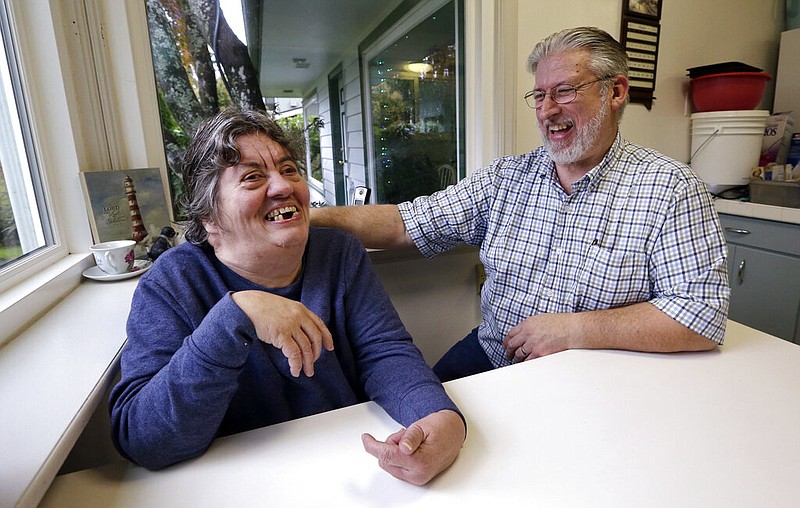Combining caregiving with personal and everyday needs for someone with a disability, whether it be a child or adult, is challenging, said Janette Wheat, Cooperative Extension Program specialist and associate professor of human development and family studies at the University of Arkansas at Pine Bluff.
The Centers for Disease Control and Prevention has information to help both the caregiver and those being cared for to stay safe and healthy, according to a news release.
"Use these general caregiving tips on staying healthy and positive. Information, support, advocacy, empowerment, care and balance can be the foundation for a healthy family and are appropriate no matter what the challenge," Wheat said.
Basic caregiving tips from the CDC include:
• Be informed. Gather information about the family member's condition and discuss issues with others involved in that person's care. Notice how others care for the person with special needs. Be aware of signs of mental or physical abuse.
• Get support. Family members and friends can provide support and many times want to help. Let them. Join a local or online support group. It gives the caregiver the chance to share information and connect with people going through similar experiences. Go beyond support groups that focus on a particular disability or need as some local and national groups provide services, recreation and information for those with disabilities.
• Be an advocate for the person with a disability. Effective advocates many times are more successful at getting better service, according to the CDC. Ask questions. For example, if someone who uses a wheelchair wants to go to the beach, find out which beaches are accessible via car, ramp or portable walkway mat.
• Document the medical history of the person with a disability. Inform other caregivers of special conditions, such as a latex or other allergies. Also, remind dental and medical staff at each visit.
"Ask caregivers to make their employers aware of their caregiving responsibilities and to become familiar with the Americans with Disabilities Act and the Family Medical Leave Act and how they may apply to your situation," Wheat said.
• Be empowering and focus on what people with disabilities can do. Celebrate appropriate milestones with them.
"If someone asks a question about the family member with the disability, let him or her answer when possible," Wheat said. "Doing so helps empower the individual to engage with others."
Wheat advises teaching the person with a disability to be as independent and self-assured as possible, but always keep health and safety in mind.
• The caregiver must take care of themselves. Caring for someone with special needs or a disability can wear out even the healthiest caregiver. The person should stay healthy for themselves and the person who needs the care. Strive for balance. Work hard to maintain hobbies, personal interests and friendships. Caregivers shouldn't let caregiving consume their lives.
The CDC echoes Wheat in advising delegating some caregiving tasks to other reliable persons. Take a break even if it is a short one such as a walk. Consider a retreat or get away when appropriate.
• Do not ignore signs of illness. If the caregiver gets sick, that person should see a health care provider. Pay attention to both one's mental and emotional health. Exercising and eating healthy are important. The CDC reminds people that taking good care of oneself also helps the person being cared for.
• Keep balance in the family. A family member with a disability may require extra care and attention. But, take time for all family members. It is important for family members to also spend time with one another and any children in the family.
• Consider respite care, which is short-term, temporary care provided to those with disabilities so that their families can take a break from the daily routine of caregiving, advises the CDC and Wheat.
• Be prepared. Caregivers and those with disabilities should have a disaster plan to protect themselves in case of an emergency or disaster. Disasters can strike quickly, without warning. Fires, floods, disasters or acts of terrorism can force people to either leave their home or be confined there.
